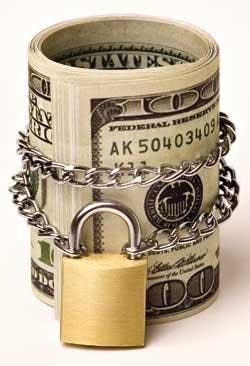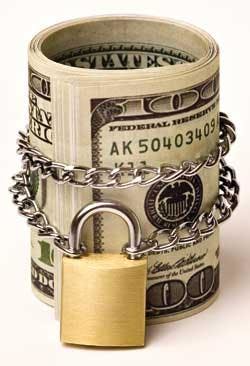Protect what you produce
By Donald P. Lewis Jr., DDS, CFE
Financial misappropriation of the dental practice
For more on this topic, go to www.dentaleconomics.com and search using the following key words: embezzlement, protect what you produce, key internal controls, financial security.
A business manager we'll call Wanda for a group dental practice was in the position she always wanted — one of trust and control. The doctors trusted Wanda so much that she convinced them she could handle the practice's finances. By doing so, the doctors were free to do what they loved most — practice dentistry. This trust and control was earned over a period of 15 years since Wanda had started to work in the practice after high school graduation.
During the past several years of her employment, Wanda proceeded to set up several credit card bank accounts in the name of the practice and use them for her own living expenses. She paid for hair appointments, groceries, gasoline, restaurants, tanning, and clothes. Wanda was in full control of the accounts payable, and was therefore able to pay a minimum amount to the credit card companies to allow her to continue the scam.
Wanda would open the credit card statements and make out the check for payment, and had developed such an intense connection of trust with the doctors that they “blindly” signed the checks! The embezzlement was finally revealed when Wanda became so greedy, arrogant, and ambitious that she bought two round–trip tickets to Europe for her and her boyfriend with the credit cards. She was no longer able to keep the misappropriation of funds secret and was finally caught, but not until she had spent more than $135,000 of the doctors ‘hard–earned money.
When finally confronted and released from employment, Wanda tried for sympathy by stating that what she did was “inexcusable,” but that now she was “scared.”
Sorry, Wanda! Too little, too late!
This is not much different from stories we hear all the time and in all walks of business. It's about the “great and trusted” employee who, for whatever reason, decides that he/she is just as important as the doctor and needs to be monetarily compensated to represent this position of trust.
Where are the basic flaws in our practices? The simple answer to this complex question lies with the lack of internal controls and as importantly, the doctor's lack of managerial ability to not only institute internal controls in the practice, but monitor and enforce these controls.
In my seminars, I'm often asked to discuss the key internal controls necessary to help proactively prevent the misappropriation of funds in the dental office. Internal controls can cover a multitude of subjects that can include any issue pertaining to the financial management of the practice. For purposes of this article, I'll narrow these down to some of the more basic internal controls that absolutely need to be in place.
These can include, but are not limited to:
1. Segregation of duties: This is the single most important internal control in any type of business. Having multiple employees able to do multiple functions is the first and foremost internal control. The functions of billing, collections, and delinquent accounts should also be separated.
2. Practice management software: Make the effort to learn the intricacies of your practice management software and determine the areas that can be manipulated by the dishonest employee.
3. “Daily audit trail”: Print and review the “daily audit trail” on a daily basis. This one single report should contain each and every transaction that has transpired in the office since the last “daily audit trail” was printed. This trail needs to not only be dated, but also numbered to help determine any “missing” audit trails.
4. Random spot checks: Conduct random spot checks of patient ledgers, collections, accounts receivable, and accounts payable.
5. Bank deposits: These need to be made on a daily basis and this function should be rotated among different employees. Checks received in the office should be secured and immediately stamped “For Deposit Only” with the practice's bank endorsement stamp. Bank deposits also need to be monitored for unusual patterns of deposit or any unexplained increases or decreases.
6. Monthly credit card statements and receipts: These need to be audited for validity and proper disbursement.
The problem that we see, which is illustrated in the story about Wanda, is that if one person is in charge of the practice, then this person can very easily circumvent any or all of the above internal controls. This person is usually a key, trusted employee who loves to “work alone,” even when others are in the office. He or she is often responsible for the entire financial portion of the practice: from the accounts receivable to the accounts payable, and even the payroll. This one–person operation does not allow the proper placement of internal controls.
Using the six internal controls will reduce the likelihood that one person can completely control the financial process of the practice from beginning to end. These internal controls also serve to protect honest employees from being falsely accused of misappropriation for what may be an honest mistake. The ultimate responsibility to make sure that the segregation of duties is implemented and followed falls on the doctors.
The staff should know that these policies are designed to protect them as a group. When the overall internal controls are weak, employees may be tempted and put at risk where they are not properly monitored. Given the proper combination of opportunity, rationalization, and perceived need, it won't take long for an employee to decide that the practice's money is also his or her money. Embezzlement can happen that fast. Doctors need to give employees tasks and controls and expect them to follow through. Blind trust leads to the heart of embezzlement cases.
Once you have put the basic internal controls into place (and others to follow), the next question is, “Who's going to monitor the controls?” This should be someone independent from the daily workings of the employees — in other words, not one of the other staff members. This should be at minimum the doctor, but if the doctor doesn't feel comfortable monitoring, then he/she should delegate to an independent source. This could be the practice accountant or practice consultant. In any event, the ultimate responsibility is the doctor's.
By monitoring the internal controls of the practice, a valuable message is sent to the staff. You want them to know you will set the tone and lead by example. Remember, if employees perceive that the internal controls are not important to you, they won't think they are important to them. Also, the staff needs to know that it is their responsibility to safeguard the financial portion of the practice while it's under their control. For this reason, it's important to give clear direction of the internal controls to the staff and let them know exactly what the tasks are to be accomplished within the parameters of your internal controls.
In summary, to achieve financial security in your practice, you need to review your present internal controls, and institute the basic internal controls mentioned here. Make sure that your internal control policies and procedures are in place. These need to be continually monitored to ensure that the expectations are met and the policies followed. And finally, an individual who is independent from the daily operations must periodically monitor the work of key and trusted employees.
Embezzlement, fraud, misappropriation, and white–collar crime are increasing each and every year. We have a fiduciary responsibility to our practices and our honest employees to attempt to proactively eliminate this.
Donald P. Lewis Jr., DDS, CFE, is a Diplomate of the American Board of Oral and Maxillofacial Surgery and is currently in private practice in Cleveland, Ohio. For more information on his seminars or books, call (216) 261–1010 or send an e–mail to [email protected].

